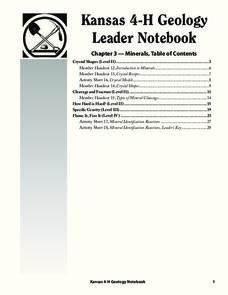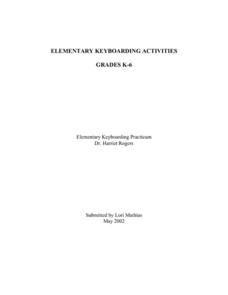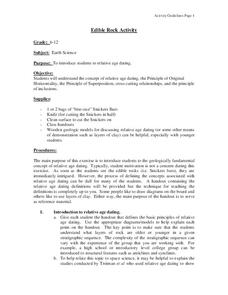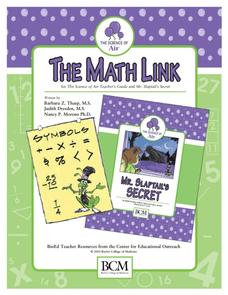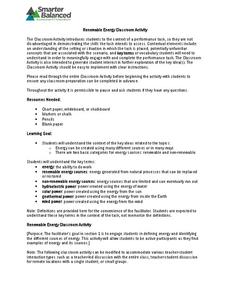Discovery Education
Clutter Cutter
Challenge young learners to cut the clutter with this fun engineering project. As employees of a home and office supply company, young engineers are asked to develop devices that organize everyday items. After participating in a...
Oregon State
World Map of Plate Boundaries
Young geologists piece together the puzzle of plate tectonics in an earth science lesson. Given a physical map of the world, they search for land formations that indicate the location of different types of plate boundaries.
Serendip
How Do Biological Organisms Use Energy?
When an organism eats, how does food become energy? Young biologists follow glucose through the process of cellular respiration to the creation of ADP using a discussion-based activity. The resource also highlights conservation of mass...
Serendip
Food Webs, Energy Flow, Carbon Cycle, and Trophic Pyramids
The reintroduction of a species to an area doesn't always go as expected. Scholars learn about the reintroduction of wolves into Yellowstone National Park with a video, reading, and discussion questions. They complete a hands-on activity...
K-State Research and Extensions
Crystal Shapes
Of quartz I love geology! The chapter offers five activities at three different levels. It features hands-on activities that cover crystal shapes, cleavage and fracture, hardness scale, specific gravity, and mineral...
Curated OER
Elementary Keyboarding Activities
Listen to the sound of children's fingers flying across their keyboards as they perform these fun typing lessons. From creating alphabet books and multimedia presentations to researching presidents and writing class...
Boward County Public Schools
Hoot Activities
If you're looking for engaging, cross-curricular, inquiry-based activities and projects to support your class reading of Carl Hiaasen's Hoot, you've come to the right place!
Curated OER
Real-World Projects: Challenges from the Polymer Industry
Two scenarios are presented for chemistry detectives to decipher. Both require the use of an infrared spectrometer and focus on the examination of polymer materials. In the first, lumps in polyethylene bottles are analyzed. In the...
American Chemical Society
Liquids - Clearly Unique
Bring chemistry to life for scholars as they perform two tests to examine the unique properties of three liquids. Classroom investigators make observations, develop basic lab skills, and follow step-by-step instructions to compare water,...
Curated OER
Edible Rock Activity
Who knew Snickers® could be used to teach science? Give your budding earth scientists a chance to explore the Law of Superposition, in addition to a well-earned snack.
Serendip
Genetic Engineering Challenge – How Can Scientists Develop a Type of Rice That Could Prevent Vitamin A Deficiency?
Brown rice contains vitamins B and E, while white rice lasts longer in storage. The availability of rice around the world makes it a great candidate for genetic engineering. Scholars apply their knowledge of genetic engineering to solve...
Howard Hughes Medical Institute
DNA Profiling Activity
Everyone loves a good mystery ... can your class actually solve one? Partnered pupils take on the role of forensic investigators during a three-part activity focusing on DNA evidence processing. Learners discover the methods used to...
Teach Engineering
Clay Boats
Clay itself sinks, but clay boats float. Why? Young engineers build clay boats to learn about buoyancy. They test the weight the boats can hold using washers and then tweak their designs to make improvements, following the engineering...
Baylor College
Air: The Math Link
Inflate this unit on the science of air with these math skills practice and word problems. Accompanying the children's story Mr. Slaptail's Secret, this resource covers a wide range of math topics including the four basic...
Illustrative Mathematics
How Thick Is a Soda Can I?
The humble soda can gets the geometric treatment in an activity that links math and science calculations. After a few basic assumptions are made and discussed, surface area calculations combine with density information to develop an...
American Chemical Society
Entropy and Enthalpy Changes
My room isn't messy — it's a scientific experiment in entropy! Scholars investigate entropy, enthalpy, and spontaneity through a guided procedure and set of questions. The lesson connects the Second Law of Thermodynamics, energy...
Serendip
Soap Opera Genetics – Genetics to Resolve Family Arguments
Did she cheat on her husband? Did the hospital switch the babies? Should they have children? As much as this sounds like the plot for a soap opera, all of these questions fit into a single lesson on genetics. Scholars read about three...
Baylor College
Resources and the Environment: The Math Link
Take advantage of this interdisciplinary resource and bring together topics in science, language arts, and math. Use characters and events from the story Tillena Lou's Big Adventure as a context for practicing addition and...
Nuffield Foundation
Digestion of Starch: Microbes
Sugar isn't good for you, but it's great for microbes. A simple experiment has pupils investigate the digestion of starch by microbes to produce sugars. They apply two bacterial cultures, an amylase solution, and distilled water on a...
Serendip
The Molecular Biology of Mutations and Muscular Dystrophy
Different types of mutations cause unique types and degrees of muscular dystrophy. Scholars learn about the types of mutations and the impact on the body. They compare the location of the mutations and draw conclusions about how it is...
Serendip
Cells as Molecular Factories
Cells are both made of molecules and make molecules all at the same time! An exploratory lesson provides a means for scholars to research the components of cells made of molecules and also investigate the molecule-producing power of...
Smarter Balanced
Renewable Energy
Renewable and non-renewable energy sources are the focus of a series of activities that prepare learners for a performance task assessment on energy. Groups identify the various sources of energy and classify these sources as either...
Teach Engineering
Linear Regression of BMD Scanners
Objects may be more linear than they appear. Scholars investigate the relationship between the number of bone mineral density scanners in the US and time. Once they take the natural logarithm of the number of scanners, a linear...
Teach Engineering
Cell Membrane Color Sheet and Build a Cell Membrane
A cell of another color is still a cell. Pupils color a cell to identify its structures in the fourth segment of a seven-segment series. Groups work together to build a three-dimensional cell membrane segment, which is combined with...




